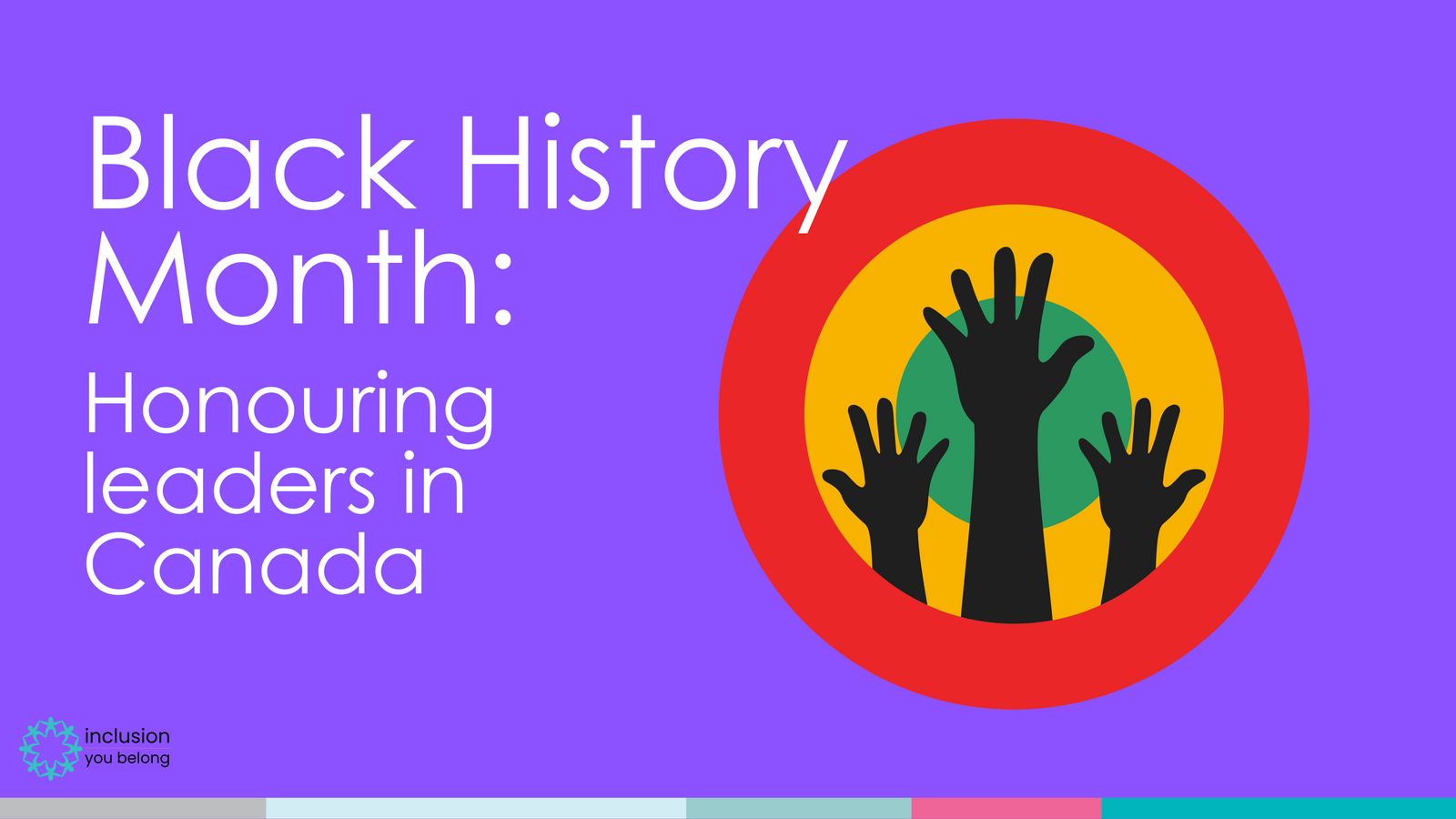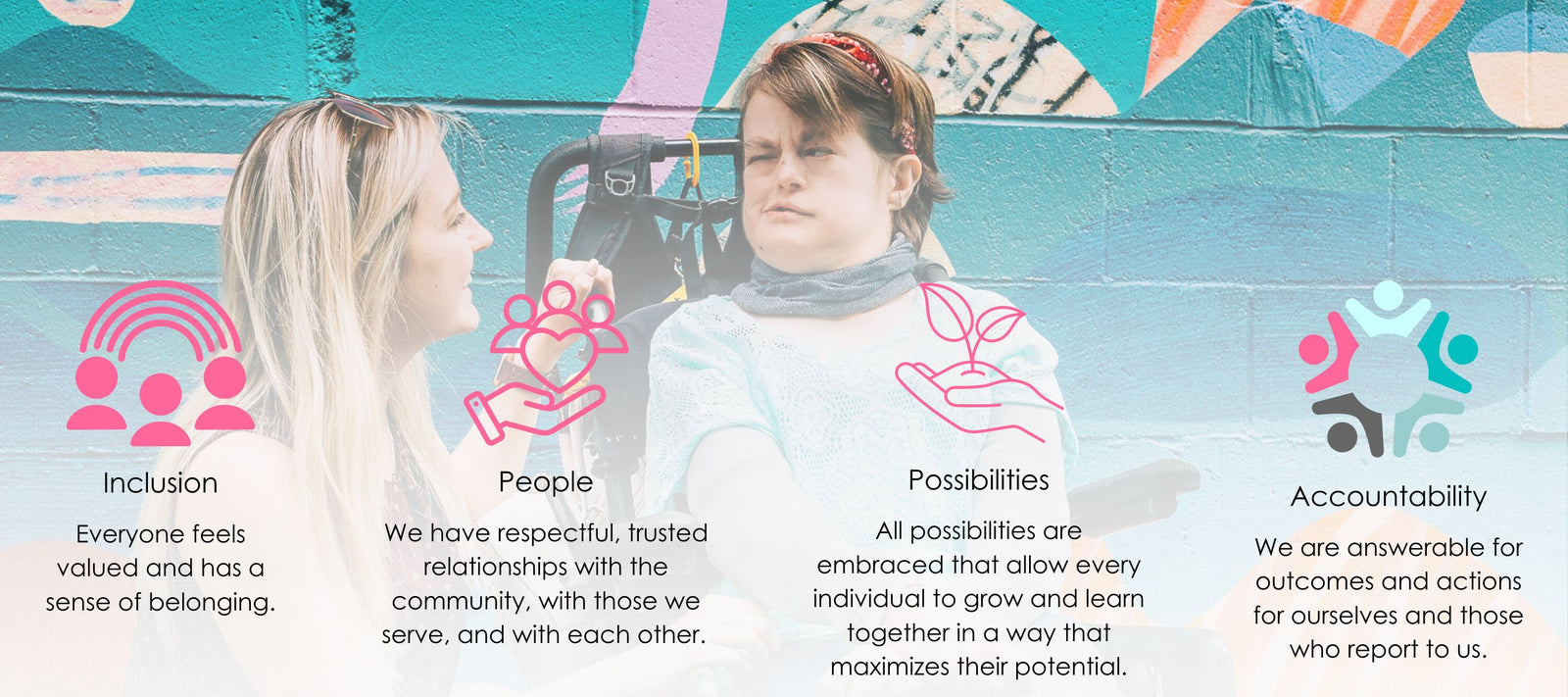Programs and services
who we are
Get Involved

Black History Month: Honouring Leaders in Canada
January 31, 2025 4 min read
Black History Month (BHM) occurs in February every year. It is a month-long commemorative that honours the achievements and contributions of Black people throughout history.
It is also an opportunity to learn more about the systemic barriers of Black people and encourage meaningful conversations about equity and inclusion. These conversations can challenge us to reflect and grow and are essential to building a community where everyone belongs.
Learning about the different lived experiences of our neighbours is the only way to truly understand the obstacles they may face.
This blog focuses on how race and disability overlap by highlighting Black leaders and activists in Canada's disability movement. Their stories remind us why Black History Month is necessary to create a more inclusive world for everyone.
How Black History Month Started
Black History Month was founded in the United States by Carter G. Woodson -- a historian known as the "Father of Black History."
Carter was concerned about the lack of information on African American accomplishments in history books, so in 1926 he launched "Negro History Week."
The week eventually became a month, and in 1976, the U.S. officially recognized it as Black History Month.
February was chosen to host Black History Month because it shares a birthday with Frederick Douglass, a former enslaved person and abolitionist leader, and Abraham Lincoln, who issued the Emancipation Proclamation.
In Canada, Black History Month was officially recognized in 1995 after a motion by the Honourable Jean Augustine, the first Black woman elected to Canada's Parliament.
Today, Black History Month is an opportunity to honour the cultural heritage and contributions of Black Canadians while also addressing ongoing issues of racism and inequality.
Why Black History Month is Important
Celebrating Black History Month is about remembering the past, recognizing what's happening now, and influencing a better future.

Here's why it matters:
- Celebrating Black excellence: Black Canadians have made incredible achievements in every field, from science and art to politics and social justice. These contributions deserve acknowledgment and celebration.
- Addressing systemic racism: Acknowledging history helps us understand how systemic barriers continue to affect Black communities today. This understanding is essential for guiding change.
- Fostering inclusion: By highlighting the experiences and achievements of Black individuals, we can build a more inclusive and equitable society.
- Celebrating intersectionality: Black History Month is also an opportunity to explore how being Black and disabled impacts one's life.
Five Black Canadian Leaders/Activists in the Disability Movement
1. Sarah Jama

Sarah Jama is the former executive director of the Disability Justice Network of Ontario (DJNO) and Independent Member of Provincial Parliament for Hamilton Centre.
She is a force in the disability justice movement. She has worked hard to remove the barriers that disabled people face, especially those from racialized communities.
Sarah believes understanding how different identities intersect, like being black and disabled, is required to achieve justice and equality.
2. Gift Tshuma

Gift Tshuma is an accessibility and inclusion consultant, disability rights activist, and composer. He is well known for his work in assistive technology and accessibility training and for composing music that amplifies the stories and experiences of marginalized communities.
Gift's advocacy emphasizes the importance of education, community engagement, and breaking stereotypes about disability in Black communities.
Through his work, he has inspired many people to embrace their identities and fight for inclusion.
For example, he has hosted workshops to help individuals master assistive technology tools, making workplaces and communities more accessible. He actively challenges stereotypes about disabilities in Black communities, enabling greater understanding and acceptance.
3. Jean Augustine

Jean Augustine is a trailblazer in Canadian history and a name everyone should know!
She made history in 1993 as the first Black woman elected to Canada's Parliament. Just two years later, she introduced the motion to officially recognize February as Black History Month in Canada, a groundbreaking achievement that passed unanimously.
But her contributions go far beyond that. Jean has spent her entire career advocating for education, equity, and diversity.
From her early days as an educator to her work as a politician and community leader, Jean has been a champion for social justice and has inspired countless Canadians to stand up for what's right.
Her legacy is a powerful reminder of how determination can create lasting change.
4. Rosemary Sadlier

Rosemary Sadlier is an author (Harriet Tubman: Freedom Seeker, Freedom Leader, and Leading the Way: Black Women in Canada), historian, and activist whose work has positively impacted Canada.
Rosemary fiercely advocates equity and social justice and led the campaign to make Black History Month an official observance in Canada.
Through her books, speeches, and community work, Rosemary inspires others to recognize the value of diversity and strive for a fairer society.
5. Karine-Myrgianie Jean-François

Karine-Myrgianie Jean-François is a passionate and purposeful community leader. A powerful advocate at the intersection of race, disability, and feminism, she works tirelessly to break down barriers and create inclusive spaces.
Karine-Myrgianie is known for empowering marginalized communities by promoting accessibility and equity through her advocacy.
Whether organizing community initiatives or speaking out on systemic barriers, her work inspires real change and challenges society to do better.
By amplifying the voices of Black and disabled individuals in Canada, Karine-Myrgianie is paving the way for a more equitable future.
Education leads to equity
Canada is one of the most diverse countries in the world, and this diversity is one of our superpowers. Black History Month is an excellent reminder of the importance of celebrating diversity while acknowledging systemic barriers that Black and racialized communities face.
Every opportunity you take to learn about the different cultures, histories, and lived experiences of others helps create a society where everyone truly belongs. Engaging in Black History Month events or reading about Black Canadian leaders can help deepen your understanding and commitment to equity.
Learning and listening make space for understanding, empathy, and meaningful action -- the foundations of equity and inclusion.
When we celebrate the voices and achievements of Black leaders and activists, we honour their legacy and help to actively build a future where everyone has the opportunity to thrive.
To learn more, visit the B.C. Black History Awareness Society website.
Leave a comment
Comments will be approved before showing up.
sign up!
Join our email list to get insider news and updates.














